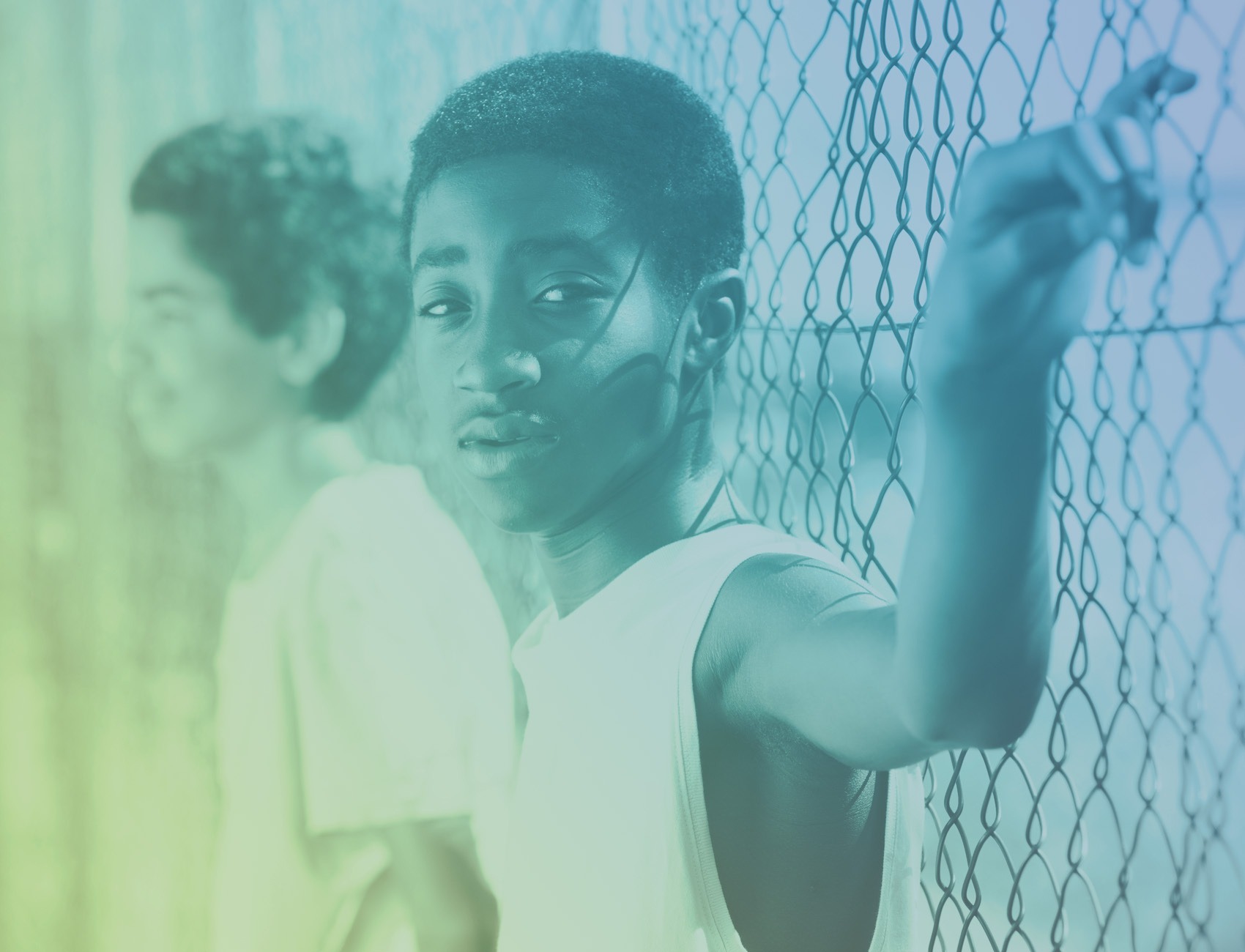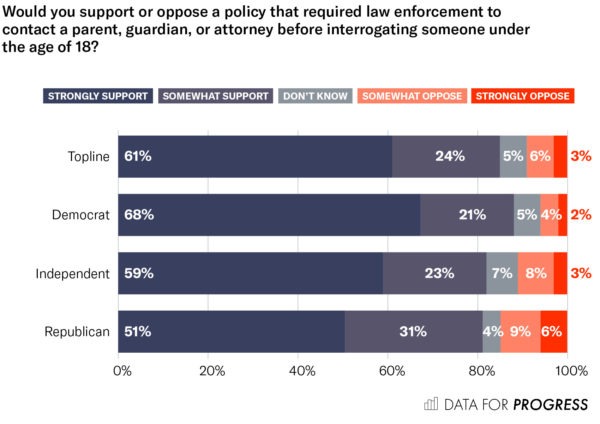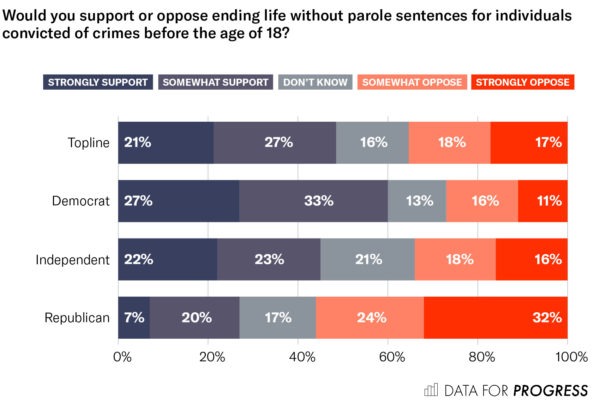Poll: Maryland Voters Want Major Youth Justice Reform
New polling shows that MD voters support ensuring children have a chance of release and are protected from coercive police interrogations.

A new statewide poll from Data for Progress and The Lab, a policy vertical of The Appeal, shows that Maryland voters support youth justice reforms that would ensure children are not locked in prison for life without any chance of release, and protect children from coercive police interrogations:
- 48% of voters support abolishing life sentences without parole for crimes committed by people under the age of 18, while just 35% oppose—a delta of 13 points favoring reform. Sixty percent of Democratic voters support the proposal.
- 85% of voters support requiring law enforcement to contact a parent, guardian, or attorney before interrogating anyone under the age of 18, including 89% of Democratic voters and 82% of Republican voters.
Key Context
Under Maryland law, kids accused of certain serious crimes are automatically charged and (if convicted) sentenced as adults, meaning they are subject to decades-long or life prison sentences and prevented from accessing a juvenile system that places a greater priority on rehabilitative services over punishment.
This harsh approach to youth justice has been a catalyst for draconian prison terms and racial injustice. Maryland has the country’s highest racial disparity among youth serving long prison terms—among those serving the state’s longest 10 percent of prison sentences, more than half were incarcerated as kids or young adults and 82 percent are Black.
In response, the Maryland legislature is currently considering the Juvenile Restoration Act (JRA), which would abolish life without parole sentences for all children convicted of crimes committed under the age of 18. The bill would apply retroactively, granting anyone who has served more than 20 years a chance to petition for release. Of the 415 people who would be immediately eligible for judicial review, 87 percent are Black–a highly disproportionate number in a state where Black residents make up just 30 percent of the population.
The JRA is grounded in decades of empirical evidence and consistent with the national trend to give children and young adults a meaningful chance to grow, change, and rehabilitate. Study after study shows that the human brain is still developing at age 25, with younger people more likely to act impulsively without understanding the consequences of their actions. Corollary research also shows that kids often “age out” of crime as they age and mature. If passed, the JRA would build on national momentum to abolish juvenile life without parole, making Maryland the 25th state to ban juvenile life sentences.
A related Maryland bill would protect children from coercive police tactics that can funnel kids and young adults into the state’s adult prison system. SB136 would require any law enforcement officer who takes a child into custody to contact that child’s parent, guardian, or attorney and tell them where the child is, what charges they’re being held on, and how to make in-person contact with the child. The bill prohibits law enforcement from interrogating the child until they have consulted with an attorney.
Young adults and children under age 25 are more easily influenced by the authority of law enforcement and less capable of understanding their rights under Miranda v. Arizona to remain silent and meet with a lawyer before answering police questions. Subjected to police coercion and deception, kids are more likely to respond in ways that are untrue but provide police officers with what they apparently want to hear, making fabricated statements that falsely implicate themselves or others.
Full Poll Results


Polling Methodology
From February 26 to March 2, 2021, Data for Progress conducted a survey of 669 likely voters in Maryland using web panel respondents. The sample was weighted to be representative of likely voters by age, gender, education, race, and voting history. The survey was conducted in English. The margin of error is ±4 percentage points.

